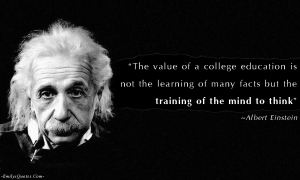 I was talking to Chris recently about a poem he had written, which had the image of a person, himself as a child at an aunt’s house, looking through a window at a procession of people. The observer was warm and comfortable while the objects of his observation were poor, cold and victims of various kinds. Chris also mentions that the observer had no ‘thought or feeling for what he saw’. Gradually, through the process of growing up and life’s experience, there took place a crossing over, from being the warm observer to experiencing life from the same perspective as the victims of cold and deprivation. He had become one of the victims himself. And yet in reflecting on this divide in society between the observers and the observed, Chris notes the way that the way the gap between rich and poor has been normalised and not felt to be worthy of comment. The division between the two is symbolised by the double glazed window; on one side is warmth while on the other side cold and hunger and nobody seems to care or see anything strange in the situation.
I was talking to Chris recently about a poem he had written, which had the image of a person, himself as a child at an aunt’s house, looking through a window at a procession of people. The observer was warm and comfortable while the objects of his observation were poor, cold and victims of various kinds. Chris also mentions that the observer had no ‘thought or feeling for what he saw’. Gradually, through the process of growing up and life’s experience, there took place a crossing over, from being the warm observer to experiencing life from the same perspective as the victims of cold and deprivation. He had become one of the victims himself. And yet in reflecting on this divide in society between the observers and the observed, Chris notes the way that the way the gap between rich and poor has been normalised and not felt to be worthy of comment. The division between the two is symbolised by the double glazed window; on one side is warmth while on the other side cold and hunger and nobody seems to care or see anything strange in the situation.
I make no attempt to say more about this poem, but to note that it has created for me an image that leads into a Christmas reflection. In my imagination, I see, not a warm comfortable child watching the world go by, but God looking down through his double glazed window on a world, not just cold, but weary with the evil of rampant selfishness in the people. If God could be said to be able to have a conversation with himself, it might go as follows.
‘What can I do to make a difference in that place that is stuck with everyone trying to gain power and advantage over everyone else? How can I show to humankind another way to exist beyond that of getting one over their fellow human beings and using that advantage for their own selfish ends? The one thing I can do is to live there myself and show them what a human life can be. It may be able to teach them to live in a different way, the way of generosity, compassion and love.’
After this imaginary conservation, we can see God going on the other side of the double-glazed window to live a life alongside power-obsessed humanity. What happens to the one who lives out the life of complete generosity and love? He becomes the victim of the dynamic forces of constant power seeking in human beings. He is the victim of crucifixion.
But before God experiences this cruel punishment, he sows the seed of a different way of living among a group of followers. A light and a longing for something different is sown in the hearts of humanity. They are given a picture of what life can become if each individual can see others, not as the target of exploitation in any way, but as fellow beings who can be on a journey to living a different way, a way transformed by the love of God himself. But still more important is the realisation that after God has come through a ‘double-glazed window’, that that barrier has been broken down for ever. The words of Jesus resonate through the ages, ‘where I am, there you will be also’.
The Christmas story is the beginning of a fundamental shift in the way things are and the fact that the barriers between life and death, between earth and heaven, between God and man,
have now been breached. Christmas is about the passing through the ‘double-glazed window’. Because of the act of identification, human beings can experience a surge of hope and joy within them. Emmanuel God with us.





